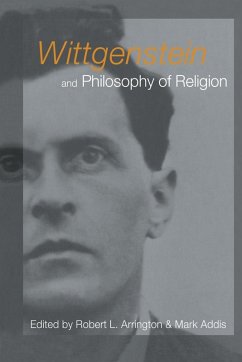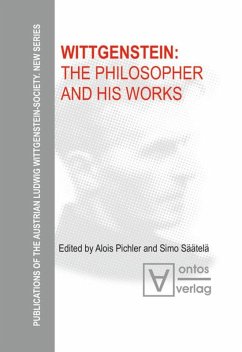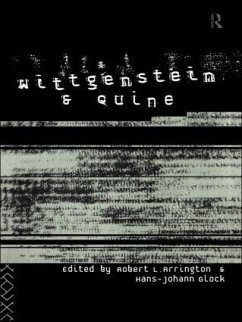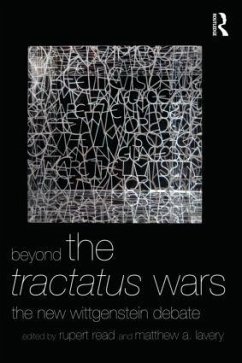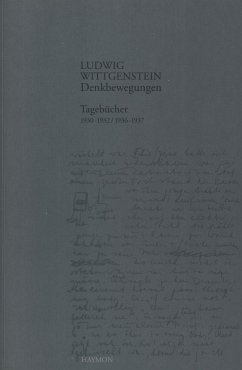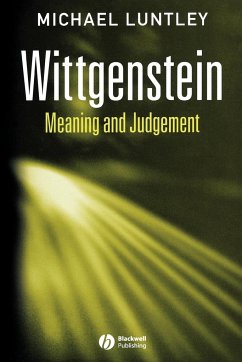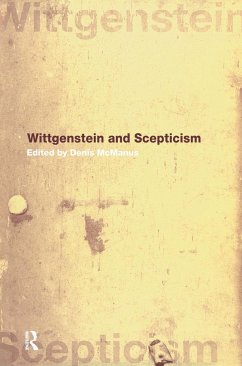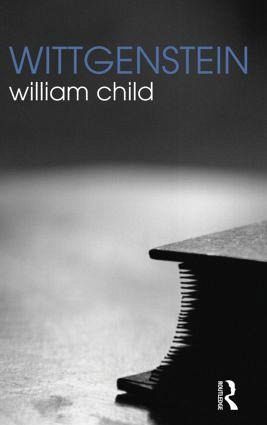
Wittgenstein
Versandkostenfrei!
Versandfertig in 6-10 Tagen
22,99 €
inkl. MwSt.
Weitere Ausgaben:

PAYBACK Punkte
11 °P sammeln!
Ludwig Wittgenstein (1889-1951) is considered by most philosophers - even those who do not share his views - to be the most influential philosopher of the 20th century. His contributions to the philosophy of language, mind, meaning and psychology - as well as to logic, mathematics and epistemology - permanently altered the philosophical landscape, and his Tractatus Logico Philosophicus and Philosophical Investigations continue to be studied in philosophy departments around in the world. In this superb introduction and overview of Wittgenstein's life and work, William Child discusses:Wittgenste...
Ludwig Wittgenstein (1889-1951) is considered by most philosophers - even those who do not share his views - to be the most influential philosopher of the 20th century. His contributions to the philosophy of language, mind, meaning and psychology - as well as to logic, mathematics and epistemology - permanently altered the philosophical landscape, and his Tractatus Logico Philosophicus and Philosophical Investigations continue to be studied in philosophy departments around in the world. In this superb introduction and overview of Wittgenstein's life and work, William Child discusses:
Wittgenstein's early work, Tractatus Logico-Philosophicus, including his account of language and thoughtWittgenstein's subsequent rejection of some of the central doctrines of the TractatusWittgenstein's later philosophyintentionality and rule-followingphilosophy of mind and psychology in Philosophical Investigationsknowledge and certainty, and Wittgenstein's final workphilosophy of religionthe legacy and influence of Wittgenstein's ideas in philosophy, and beyond.
Including a chronology, glossary, and helpful conclusions to each chapter, Wittgenstein is essential reading for anyone coming to Wittgenstein's philosophy for the first time.
Wittgenstein's early work, Tractatus Logico-Philosophicus, including his account of language and thoughtWittgenstein's subsequent rejection of some of the central doctrines of the TractatusWittgenstein's later philosophyintentionality and rule-followingphilosophy of mind and psychology in Philosophical Investigationsknowledge and certainty, and Wittgenstein's final workphilosophy of religionthe legacy and influence of Wittgenstein's ideas in philosophy, and beyond.
Including a chronology, glossary, and helpful conclusions to each chapter, Wittgenstein is essential reading for anyone coming to Wittgenstein's philosophy for the first time.






